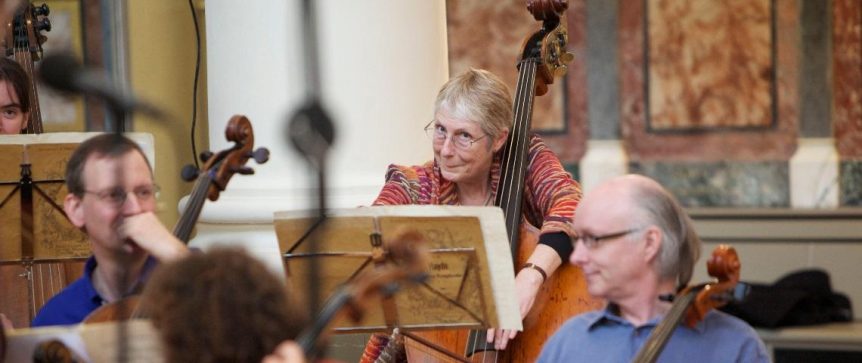Part one of this interview is here
Could you explain to our readers what Making Music does?
Making Music is a membership organisation for people who play or present leisure-time music together in groups – for fun!
We believe that everyone should have the opportunity to make and present their kind of music with others and our role is to support, celebrate and promote our members activities. We do this mainly by offering practical tools and resources, artistic development opportunities and by providing a collective voice for our members. From samba bands to symphony orchestras, choral societies to handbell ringers we now represent over 3,600 groups across the UK, made up of around 200,000 musicians of all types, genres and abilities.

Making Music has a long history?
It was founded in 1935 and it started off as a group of professional musicians who were trying to make it easier for groups of amateur musicians to work together. Amateur groups at the time tended to work with and book professional musicians so there was an effort to coordinate their events. They wanted to make sure that events weren’t on at the same time, or they weren’t double booking the professionals.
Were there lots of amateur groups at the time?
There were pockets of amateur groups throughout the UK. Usually they played classical music and they would often work from sheet music using orchestral instruments.
There has always been leisure-time musicians in this country; brass bands for example springing up through workplaces, communities coming together in order to make music. People were also becoming more mobile so they could attend rehearsals which were beyond their local area.
Who were the people who set up the original organisation?
A man called Frederick Woodhouse, who was in the Incorporated Society of Musicians (ISM), a professional body, and Sir John Dyson, founded the National Federation of Music Societies and they got a grant of £30,000 from the Carnegie UK Trust to run the new organisation.
After the war, The Council for the Encouragement of Music and the Arts (CEMA) – effectively the Arts Council – was started, and they tapped into some funding from that organisation.
Around twenty years ago the organisation’s name was changed to Making Music to better reflect the incredible breadth and variety of music groups now in existence across the UK!

And what are the key things that Making Music provides?
The organisation exists to support leisure-time musicians, which we do by providing advice, resources and services to make it easier to run a music group, as well as offering comprehensive, competitive and tailor-made insurance for amateur groups. Insurance is especially important for groups, as Public Liability Insurance is required to perform publically.
Alongside our guidance on topics such as marketing, finance and finding music, the organisation also keeps up to date with new legislation, Child Safeguarding, GDPR, the Charities Act and Gift Aid to help groups, as they consider everything involved in running a group and putting on a performance.
Are the groups you support, Making Music groups?
Our members are independent groups who come to us to get support. We encourage the groups who come to us to do whatever it is they enjoy doing, any kind of music, and we aim to allow the groups to navigate the red tape that is required to be able to either perform publicly or to organise for public performances.

How many groups are there in Northern Ireland?
We currently have around 35 groups in Northern Ireland, and growing! We have an annual meeting where we get representatives of the groups together and we have recently appointed a local manager so that we can better support our members.

You can find more information about Making Music at the following link – www.makingmusic.org.uk/
